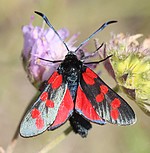| |
| | 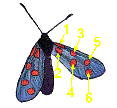 | |  | | |
| | numbering of the spots | | | | |
| | | | | | | |
| | | | | | | |
| | choice A |  | - 5 red spots of various size, sometimes touching each other but clearly visible
- spot No.4 and spot No.5 have roughly the same size
| 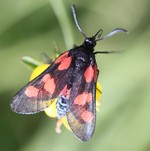 | 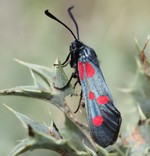 | next step >> |
| | | | | | | |
| | | | | | | |
| | | | | | | |
| | choice B |  | - 5 red spots
- spot No.1 elongated
- spots No.2 &No.4 can be linked with a thin red line
- spots No.5&6 merge, forming a spot much larger than the others and triangular
- the black border of the hindwing is very thin and its thickness is regular
| 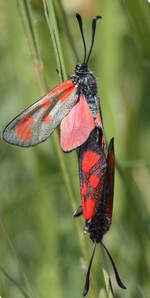 | Zygaena loti | |
| | | | | | | |
| | | | | | | |
| | | | | | | |
| | choice C |  | - 6 red spots of various size, sometimes touching each other but clearly visible
- spot No.6 can be tiny and even hardly visible
- spots No.3&No.4 can be remote from each other or touch each other
| | 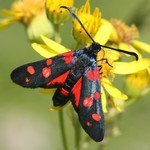 | |
| | | | | | | |
| | | | | | | |
| | | | | | | |
| | | | | | | |
| | | | | | | |
| | | | | | | |
| | | | | | | |
| | | | | | | |
| | | | | | | |
| | | | | | | |










